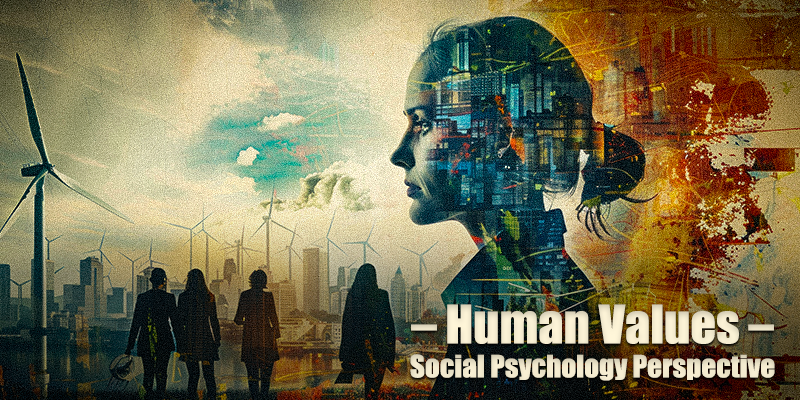Editor’s Note
Prof. Manas Chakravarty, teaches Human Resource Management at Globsyn Business School – which has always been considered to be one of the best MBA colleges in Kolkata placement wise. Prof. Chakravarty moved to academics following a distinguished career in the industry culminating in leadership roles. Prior to joining the faculty team at Globsyn Business School, he was the Associate Dean at ICFAI, Hyderabad and Dean at Unitedworld School of Business, Karnavati University, Gandhinagar. In addition to administrative and professional responsibilities, Prof. Chakravarty has delivered executive learning programs at leading corporate houses across the country and has been the program director of national and international conferences. Apart from academic writing, he also has a blog page in the Economic Times.
Human Values is a civilizational development, growing over the ages across various cultures. Almost all religious leaders, prophets and thinkers have emphasized the virtue of values such as Benevolence. Elements like Power have also been recognized as a Value in mythologies, even when accepting that its use may sometimes be detrimental to society. Indeed, there is a large corpus of ancient texts and teachings on Human Values, which is disparate. Social scientists, since David Emile Durkheim in the 19th century to Shalom Shwartz and others currently active, have worked to create a body of knowledge that will stand scientific scrutiny.
From the social psychology perspective, Shwartz has identified 10 basic values: Benevolence, Universalism, Self-direction, Security, Conformity, Hedonism, Achievement, Tradition, Stimulation, and Power.
It may appear surprising that Spirituality is missing in the above list. As noted in the blog ‘Spirituality – the Natural IOT’ published here on December 14 last year, Spirituality is indeed an important human value. However, since Spirituality is interpreted differently in different communities, there is difficulty in accommodating it in a cross-cultural framework.
For a cross-cultural framework to be duly understood and scientifically pursued, there is also a need to distinguish the following allied terms from each other so that they are not used loosely or interchangeably:
- Values vary with each other in terms of their importance, that is, something being more important or less important. For example, Benevolence is more important than Hedonism.
- Attitudes vary on a positive-negative scale, marking something to be desirable or undesirable. Attitude are based on Values. For example, attitude towards nightclubs would be positive if Hedonism as Value is more important than Tradition.
- Beliefs vary on the extent of certainty attached to it being true. For example, statements like “teaching is a noble profession,” and “class conflict is inevitable” represent Beliefs. Unlike Vales or Attitudes, the importance or desirability are not the point of issue in Beliefs.
- Norms vary on an agree-disagree scale for a standard behavioral prescription and is affected by Values. For example, there will be high agreement to the norm that “elders should be respected” if Conformity has more value than Self-direction.
- Trait represents how people think, feel or act, that is, what they ‘are’ as against Values, which represent what they consider important. For example, someone may value charity but not have the trait of being charitable. Traits may be identified by a pattern exhibited over time and across situations.
A redeeming feature of human civilization is that though there are substantial differences among individuals on the extent of importance attached to a specific Value, there is a consensus about hierarchy with Benevolence coming ahead of others as cited above. Social scientists hold that the consensus is due to the role Values play in maintaining societies. Agents of social control discourage Values that conflict with the larger interests of the society and promote those that support survival and prosperity. The linkage can be understood by examining the motivational goal of each Value.
Fostering the spirit of human values requires individual endeavor as well as institutional support. Towards this end, Globsyn Business School has established the Sukamal Dasgupta Universal Human Values Center, which was inaugurated on July 26, 2024, by Swami Shuddhidananda, Adhyaksha, Ramakrishna Mission Advaita Ashrama, Kolkata. The Center has been designed to create equilibrium in the minds of our stakeholders, especially students, enhance their cognitive, managerial, analytical, and performance skills, and prepare them to address ethical challenges in the corporate world.

Prof. Manas Chakravarty
Faculty – Human Resource Management
Globsyn Business School


